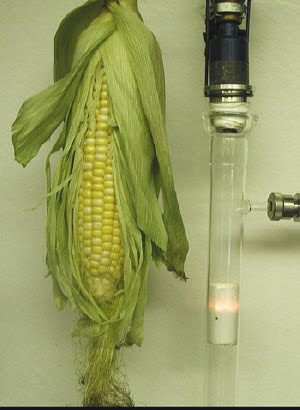The National Corn Growers Association (NCGA) has recently awarded six new technologies who won the trade association’s first “Consider Corn Challenge“, an open innovation contest where more than 30 scientists and start-up companies brought forth their best ideas on the conversion of corn into bio-renewable chemicals. NCGA and state corn associations actively support innovation in research, development, and commercialization.
The contest reinforced that corn can improve the environmental footprint of many products used by consumers including plastic bottles. acrylics, solvents, fibers, packaging, and coolants. Many of the submissions include bio-advantaged molecules with the ability to reportedly deliver performance and value that exceeds petrochemicals.
The six winners include the following:
- LYGOS – the Berkley, CA company is producing Bio-Malonic™ acid (Bio-MA) from renewable sugars using biotechnology.
- ANNIKKI – I am not familiar with this Chicago, Illinois-based company but according to NCGA, its technology is in the production of furandicarboxylic acid (FDCA).
- IOWA CORN PROMOTION BOARD – This technology developed by Iowa corn farmers is for the production of monoethylene glycol (MEG).
- VERTIMASS – the Irvine, CA, is seeking to produce aromatic chemicals using corn ethanol.
- SASYA – this Maple Grove, MN, company is producing methylmalonic acid which can compete in methyl methacrylate markets for making acrylic glass, and adhesives.
- SOUTH DAKOTA STATE UNIVERSITY – SDSU’s efforts are focused using glycerol and lactic acid to make unsaturated polyester resins (UPRs).
Each winner will receive a US$25,000 cash prize. NCGA will also explore additional opportunities to support contest entries throughout their development and/or commercialization.
NCGA noted a 2016 report from the US Department of Agriculture (USDA) study stating the US bio-based products industry has created 4.2 million jobs and generates $393 billion in value-added contributions to the economy.
BIO recently released a fact sheet calculating the direct value of the U.S. biobased economy at $205 billion, generating 1.665 million jobs. Globally, BIO estimates that the economic value of industrial biotechnology, biofuels, renewable chemicals and polymers, enzymes and biobased materials is $355.28 billion.




